Being Ugly is a sin I am happy to commit.
Ismatu Gwendolyn, sex worker and budding scholar, sits with Dr. Tressie McMillan Cottom's essay, entitled: "In The Name of Beauty."
An essay that was once going to be called “a letter to Sasha and Felicia.”
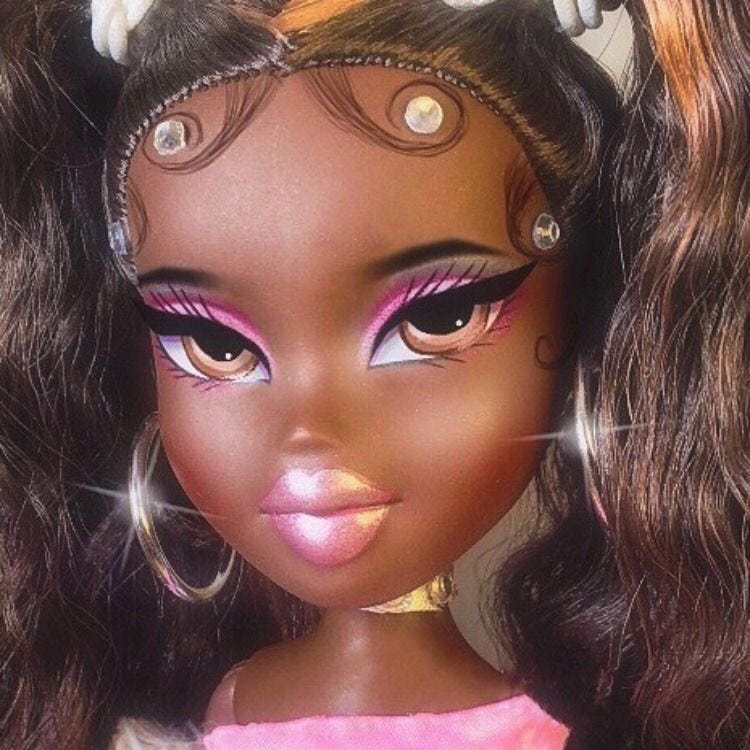
Studying the internal self requires the study of the body.
My first assertion is that I believe in my own consciousness with the same tangible surety that I have in my Body. I think contemporary thought, especially Western contemporary thought, likes to imagine the Body as a secondary characteristic to the almighty mind, or the poetic soul, or whatever light of consciousness you have buzzing inside your meat sack. The idea here is that you are the thing that inhabits your human form, and I… think that is a load of fresh horse shit. Literally. Steaming, fresh on the barn floor, horse shit. How am I more of my mind than I am my body? Who decides those rules? Does someone benefit from us thinking that way?
One day, I will make my Best Friend Brittany (™) co-write an essay with me on how the empire promotes our deep, haughty intellectualism to divorce us from our bodies’ intuitions. She is getting her phD in neuroscience so she’s the perfect person for the job. But today I am alone, so I must rely on my malleable expertise: as a trained therapist, as a reader, as a mind who is sharpened by my soft and sinewed body, and as a body who is compelled and collected by my mind’s expansion. The first unit of the Garden Space, launching with this essay, explores human connection through the sight, the touch, the presence of the Body.
The Body (n): the physical self which respirates. The flesh and bone that houses every thought an omnipotent narrator could never find the words to say. The method we first interact with the world: our bodies in same space. Skin to skin contact. The physical thing which feels through being touched and seen and held, being cast aside or hit or isolated.
I argue that I am as much my body as I am my metaphysical mind, my floating soul, my otherwise packaged and perfect ideas of self. The Body been here, breathing. Long before my mind ever learned to grow and keep growing, before my mind knew anything at all, there was the Body, respirating for us. Communicating for me. The first self that ever was, and likely the last self I will ever be, is my Body. I believe then, I would do well to study the physical nature of human connection, and I would like to take you all with me as I try to wrap my mind around this new, jagged breath. If you thought The Garden Space, a newsletter and podcast that studies the internal self and the means of connection with others, was just going to be metaphysical, you are a whole lie. How do you talk about intimacy without the body? About feelings, which live in the body? About sex and the politics that sex comes wrapped in? How do we begin with the mind when the body held us first?
Let’s begin. I have a couple questions for us.
(1) how does the internal self co-exist with the Body? In what ways do they inform each other? Are they ever completely separate? Is that even possible? And if it is possible… do I want that? What do I gain from conceiving of the mind and the body as independent forces? And if I do not stand to gain… who does?
(2) How does my Body inform my garden space, my internal self (and the vice versa?) How does my body exist and interact with world systems? How can I create safe spaces for my body, both personally and within community? what does that safety necessitate?
I am going to attempt to answer those questions by reading, writing and talking. I will be learning in real time; if you need to orient yourself to this online space, or you need more clarification on what that means for me as someone who makes art on the internet, I recommend listening to or reading the essay “The Garden Space: an Introduction.” But this I will say at the top of every unit, so we can all be on the same page about what to expect from one another.
I am engaging in the vulnerable process of learning in real time, and that means I must be in conversation with three entities: myself, my peers, and my teachers.
I will introduce myself:
My name is Ismatu Gwendolyn and I am committed to learning and feeling through the sticky nature of human connection— the study of love, or the lack thereof. I have scholastic dedication to African-American studies, global health, clinical social work and poetry, and I have academic histories and roots at Northwestern University and The University of Chicago. I am an information anarchist and I act on that politic by learning, growing, and sharing what I Iearn, both on my TikTok where I do personal + political education, and most especially here with you all, at our shared plot in my Garden Space.
I will address my community:
True learning attunes new lessons to the beat of oneself and one’s community, which is why that learning in public bit is important. If you are here, week in and week out, I consider us to be in community with one another as we learn. Grab a chair. Bring your friends. You are free to ask me any questions or leave me any comments, if not on the Garden Space Substack, then with replies to the email newsletter. Thinking in isolation is only cute for rich white men geniuses: I need to knitted in the thoughts of others like a quilt. Please, don’t make this a one way conversation.
I will express gratitude and invitations for my teachers:
To get the unit question in my lungs, I first look to the world the bodies we have are forced to wade through. Theory is a guiding light for me in the constant wade of the world, so I’m picking up some handfuls of North Star direction from a couple impeccable scholars: Dr. Tressie McMillan Cottom with essays from her book Thick: And Other Essays, which we will be discussing at length today, and later on, Dr. Sabrina Strings with her work Fearing the Black Body: The Racial Origins of Fat Phobia, excerpts from Dr. Deborah Gray White’s Ar’n’t I a Woman?: Female Slaves in the Plantation South and Da’Shaun L. Harrison’s seminal text Belly of the Beast: The Politics of Anti-Fatness as Anti-Blackness.
Notes from “In The Name of Beauty”
Section One: I am Ugly.
Tressie McMillan Cottom is not the first writer to postulate on Beauty as a whole, however she is the first to imprint her words on my person. After I read Thick: And Other Essays, I felt like I had gotten a tattoo. I was in my final year of undergrad being unsurreptitiously pushed into the “real world” that collapsed around me (both personally and politically, since I graduated in 2020). Sitting in a swivel chair of a too-cold classroom, I found Dr. McMillan Cottom to be impressive— not in that she has a resumé or writing prowess that I found formidable (though that is also the case). I mean that she, through her work, was able to touch me and leave a mark. Her thoughts, her pen, her deep understandings of the conditions we were navigating and most especially, the apologies she did and does not make stuck themselves into my brain and pressed. I am changed and I am grateful.
McMillan Cottom opens her essay “In The Name of Beauty” by revisiting words she wrote that made Black women angry. She got some deep hearty church girl mmm’s out of me, reading the entry into the analysis; if I did not relate to those sentiments then, I most definitely feel the weight of the wrong people angry at you on the internet now. The essay recounts, reflects, then reconvicts the reader about multiple assertions, however I think the one people took the most issue is as follows:
I, Tressie McMillan Cottom, am Ugly.
She used the word unattractive here, but unattractive and Capital ‘U’ Ugly mean the exact same thing. What is not Pretty is Ugly, and there is really not in between. And hoes were mad. Hoes across racial, economic, generational, and gender signifiers were mad mad. A simple statement (I am Ugly) provokes equally simple but uncomfortable follow up questions:
Why?
And, a bit further:
If you are… then what am I?
Now we’re talking.
Of course, I encourage you to read the essay for yourself. If you would like the text but cannot afford it, or if you would like to sponsor the cost information sharing for someone else in The Garden Space, email me at ismatu.gwendolyn@gmail.com. No reader left behind.
The question of the standard— who makes the standard, or what makes the standard, are pretty easily digested: white landowning men created means of measurement for what makes a marketable and effective wife to continue and expand an imperialist white ethno-state. A racist and genocidal Beauty standard follows suit. That part is not hard— or if it is, I have a lovely TikTok series explaining the basis and effects of Capital ‘B’ Beauty. The playlist is linked here in the newsletter.
Standards of Beauty are visual and visceral. Outright stating “I am ugly” acts as sacrilege against the holy and rigid performance of wielding and coveting Beauty. It is swiftly corrected. The charges brought up against the author for breaking the Beauty Rules include but are not limited to: attention seeking, fishing for compliments, self-hatred, and misunderstanding the intentions of benevolent white people when they reach out to touch you, a stranger, as if you are a very soft, rabies-free pet monkey. Look at the manner those reprimands minimize and individualize the claim. Dr. McMillan Cottom made no assertions about her personal self-esteem, or her ability to date, or what others must think about her. She stated a structural fact: I am outside the flowing cornucopia of marketable beauty. To be unPretty, to be a Have Not, is to be unnattractive. Ugly. That is a neutral and evidenced sentiment at worst.
A common counterargument usually crops up at this time— the but all. “But,” a long haired, doe-eyed darling will sigh with one single tear clumping their thick lash line, “we all suffer under these rigid and punitive beauty standards.” Yes, beloved, we do. See McMillan Cottom on the fifth page of this essay: “That is the violence of gender happens to all of us in slightly different ways. I am talking about a kind of capital.”
Stay with me here. From the same page:
Beauty isn’t actually what you look like; beauty is the preferences that reproduce the existing social order. What is beautiful is whatever will keep weekend lake parties safe from strange darker people. (page 5)
All capital is world-making. Beauty is access to that world (but it does not necessarily mean you hold onto that capital). Beauty is a kind of capital that exists as a ticket into the door of a paradise— a picture perfect pool party filled with the best liquor, the most gorgeous swimsuits, ringing laughter floating above the most beautiful people you know like beach balls. It’s perpetually golden hour. It smells like sunscreen and sleek, perfumed, oiled bodies brushing up on one another, and fruit trees blooming, and you are standing outside the wooden gate perpetually looking in. And you are meant to. That is the designated place of the Have Nots. In fact, the most you will ever be if you are an aspiring Have Not is an exception to the rule.
Beauty is the tool of whiteness. And what is that? What is whiteness again?
Whiteness is a violent sociocultural regime legitimized by property to always make clear who is black by fastidiously delineating who is officially white (McMillan Cottom, 6).
It makes sense then that such an amorphous party of people would need tools able to shape-shift alongside them. Whiteness constantly cannibalizes new groups to maintain their power. Beauty is the perfect weapon. The nebulous nature of what could be considered Beautiful means that you can convince people of happenstance. You can sell them the plastic lies of individual preferences, of coincidental trends. You can make the brainwashing incredibly easy to swallow— tasty even. Beauty in white supremacist world-making is directly tied to worth. If the task is to convince a public of pre-defined Haves and Have Nots that participating in this compulsory beauty pageant for basic societal safety is a worthwhile task, you do need to convince them they could win. McMillan Cottom speaks to this exact paradox: these two ideas, unique blessing and earned reward, are antithetical to one another (14).
“If I knew to be cautious of men, I did not learn early enough to be cautious of white women.”
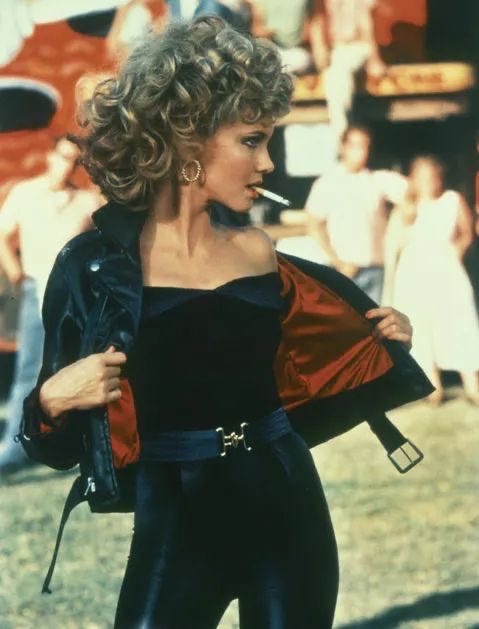
Definitionally, Black women are not Beautiful except for any whiteness that may be in, on, or around them. And white women need it to be that way, to convince themselves the work is worth it. The politics of desirability is a language that changes in between cultures and circumstances and you are expected to always be fluent. In fact, it is vital that you are always fluent. Much of your safety depends on ensuring your body is the right kind of body for the space— or if it is the wrong kind forever, that it is restrained and punished in the correct way and publicly. The performance of Ugly shame is so delicious to Pretty People it is almost the same sweet precarity as actually being marketable. It’s necessary to validate the restriction and the suffering that comes emptying out your guts to become a status symbol. The pursuit of Beauty transforms the Body in its breathing entirety into an echoey status symbol. And the constant apology and the public spectacle of it all, acts as an eternal and internal whipping post. It means that even down to the littlest basic human actions— finding seating, eating a meal, dressing in warm weather— you flog yourself. You are meant punish yourself for being visible while Ugly (or others will do so for you). Beautiful people can then say, “well. At least I can trade my suffering for money and validation.”
And it must. It must be that way, or at least be thought of that way— democratic and able to be earned. You cannot break the rules of Beauty Charades by just stating the obvious (I am Ugly). Otherwise, game over. Beauty instantaneously noticeably becomes a commodity, distributed unequally and at random. “If you did not earn beauty, never had the real power to reject it, then you are as much a vulnerable subject as I am in your own way.” (12-13)
Fuck. Exactly. Let’s keep going.
Section Two: If yah status ain’t hood
Here is that same long-hair doe-eye song. “But Lupita! But Naomi!”
Yes, darling. I know you see them. The glittering dark skin swimming like flies in milk among the rest of the shining Beautiful people. Or maybe the pool party you covet access to looks different entirely. Maybe it smells like edge control and juicy couture and a fire hydrant raining down fresh summertime relief. Maybe there’s a criminal amount of bass. There is most definitely a criminal amount of ass. And even here, still—Bodies. Laughter floating above the most Beautiful people you’ve ever seen, half of them with golden teeth.
Enter Beauty’s younger sister, cut with baking soda: Desirability.
Indulge me in a short passage.
I am dark, physically and culturally. My complexion is not close to whiteness and my family roots reflect the economic realities of generations of dark-complexioned black people. We are rural, even when we move to cities. Our mobility is modest. Our out-marriage rates to nonblack men are negligible. Our social networks do not connect to elite black social institutions. When we move around in the world, we brush up against the criminal justice system. I am not located at the top of hip-hop’s attenuated beauty hierarchy. I am, at best, in the middle. As Michael Jackson once sang, when you’re too high to get over it and too low to get under it, you are stuck in the middle and the pain is thunder (12).
Look at where Beauty is located here: not just in physicality. Not just in or on my body. In proximity to wealth— which we all know is proximity to whiteness. To the right kind of whiteness. There is nothing marketable about being Black and rural, unless you constantly apologize for it (which Dr. McMillan Cottom, for all the accusations of low self-esteem, never does).
We examine the Beauty of whiteness: featurism, hair color and texture, skin coloring, sure. Of course, those. But also: wealth. The right kind of wealth. The correct type of upward mobility. The “right” company. The appropriate accolades: enough to be impressive but not competitive. Those will all get you social capital, to be exchanged for the correct kind of attention, and rewarded with kind pedestals and a plexiglass cage where white folks can ooh and ahh at you. As a Have Not, you are meant to assume that being desired is better than the shame and isolation of complete, sneering rejection; a plexiglass cage is meant to be more appealing than dreary iron bars and shackles. The best you can be is Desirable. Beauty and Desirability are not necessarily synonymous, but they do hinge on and produce the same sort of swinging, strange fruit.
I want to note our differences here: I am pretty near the top of hip-hop’s attenuated beauty hierarchy. I know so because I am in a profession where I make money of the way my body looks. I know this because I routinely make double the money when men of particular demographics come in. If I am showing up to make my shit shake and go home, Soldier by Destiny’s Child is a wonderful rubric for me. What do the Black women in that music video look like? The ones with shining bodies, the stars of the show, the ones we are clearly supposed to be looking and looking at? What building blocks of Beauty do they have? Yes they are not white, but of course they’re not— are they attempting to be palatable to the regular-degular white folk? Who do they want licking their lips?
Black aesthetics are still able to garner and secure capital, specifically off the labor of Black women’s Beauty Work. McMillan Cottom notes that too— not to be left out, we are ingenious. We reinvent and redefine and work and work and work to make space for ourselves to be considered Beautiful, and the people that lick their lips and sign the checks are the men.
Oh, the men.
Beauty must appear to be democratic for two reasons— firstly, to convince the well-meaning but ill-informed voters that “their vote matters” (lol). McMillan Cottom already stressed this point when considering why white women are so enraged by her calling her own Black self unattractive, as if she cannot taste the water we swim in. The holiness of the vote is also enforced by the Black women that are mad mad at her because they have no desire to be Ugly by association. This happened to me too. In a video on how Beauty ideals are white supremacist, I had someone say that’s just because they put “dusty Black women on screen, like Oprah and Whoopie instead of Kash Doll.” I was on the beach reading that comment, sucking cherries and chewing the last warm days of summer. If you saw how my mouth hit the floor of Lake Michigan.
Such theater allows us to keep the veil between worlds up; one where we know what we are and are not, and one can pretend they can earn Beauty (thus: earn access, worth, and safety) if they simply try hard enough. And just a note here: that feeling of deservedness is powerful. It’s the grease that allows you to capitalize and weaponize the Beauty that you know is rotten and stinking. When you are able to say, “I earned this,” with your money, in the gym, by your makeup skill, via the man that chose you, whatever— it’s all the easier to cast aside those who cannot or choose not to do the work. You get to do that and pretend you are not making some ugly negotiations. I want us to be fr.
But, I digress. The other group that benefits from the performance of choice are the world-makers here. The men. We vote in the Beauty pageant so that the oligarchs in charge can look fairly and judiciously elected. And then— then! When “reworked” or “more inclusive” Beauty standards emerge, it’s just a coincidence that they happen to have their subject in swimsuits, drinking liquor laughing, belly up for the men who lick their lips. It is still marketable at finest, and if not marketable, desirable. Consumer ready. Safe to eat right out of the packaging.
And so we giggle at the grills and float, happy and full of alcohol, and we never think about the position of status symbol: void of true power, only touching love with possessive conditions. We’re not quite rendered speechless; of course, you can make a couple statements with your fabrics and your patterns. But you are, in large effect, a purse. Fungible items. Raw materials to be used in the dreams of the powerful. Your weighted creation doesn’t stretch further than what the checks think is Beautiful, and you might even be content because at least you are not outside the party, standing there, sweltering, sniveling. Ice cream melting. Alone.
Actually. I forgot myself. We on this inside of this party will never say that. Never out loud. Because then what— I’m hot, you’re not, game over? Where is the longing in that? We are meant to think that silently and smile to ourselves and then continue on in the charade. Of course, the Haves are not in paradise, they are allowed access into the paradise of the people that made the world for them— but at least they are inside! We take up a chorus of “self-love” and “inner peace” as the people that chose us create conditional safetys and kisses on the forehead. Material and emotional reassurance for us, “self-love” and “beautiful inside out” marketing for the Have Nots. Yes, it is all marketing, even still. You simply cannot be Beautiful and openly mean-spirited or out of balance; in all things, you must be something to admire to. We shimmer louder so that “inner glow” gets added to the worksheet called Ways to Apologize for Yourself. The most stunning thing you can do as a lady of leisure is give the Have Nots some work to do.
This is also the social theory behind why “I can take your man if I want to” is an insult. I am calling you broke in Beauty capital. Just like a pumpkin only turns to a carriage under the right benevolent wand, Beauty only turns to capital under the right kind of attention— the attention of the folks in charge. Catering to the powerful, the most resourced, the most visible gives world-makers the ability to decide what is and what is not pleasing overall. It makes sure the same people are throwing the same exclusive pool parties. The dance of standards will never be equitable: the reason you establish a norm in the first place is to ascertain who or what is deviant. Even more terrifying is considering what the menfolk who made up or modified the standards in place want from Beauty.
What’s pleasing to them is power. They make the pinnacle of Beauty conveniently synonymous with what helps them concretize their world-building power. They will cannibalize you over it. Your common Blackness means so little in the power they taste from your upturned belly.
Naming that you are on the outside of these pool parties, that you are trapped in a Desirability Zoo to have the right kind of attention gawk and throw dollars at you, that is not self-hatred. I do not internally hate myself by stating what is obvious to me. That is an assessment of self position. Self-hatred in the context of Beauty is looking at a Body, any of our breathing Bodies, and thinking “we must have a standard with which to measure them by.” Why would we ever need this? What compels us to create a norm for something that was here before we thought up cages for ourselves and our neighbors? Who benefits from us thinking our bodies are subordinate to our minds and that our mind’s preferences are always pure? How easily might it be to brainwash a populace that is convinced they alone are too smart to be duped?
Beauty is not good capital, as stated in “In the Name of Beauty.” The fruits of your labor, your Beauty work, always result in violence— for yourself, for someone else, for both. To climb up higher and safer in the beauty tree you eventually have to kick the chair out from someone else to scramble up. Yes, you do. There is no getting around it. You will always be negotiating with the death machines that chew up the Undesirables. And the best, the best, the best you will get from that plexiglass chamber is being desired by people that would kill you if they didn’t want to fuck you so bad. You were one flat nose, one wrong family tie, one degree, one cup or jean size away from swinging down there with the rest of them. You didn’t earn shit. The game of Beauty is always a negotiation and you will always, always end up at the end of someone’s beating stick. Maybe you like that. Maybe you have a kink for pain— I’m not here to change your mind. I just want us to be honest about what all of this costs of you, what it costs of me, how much it costs us.
ismatu gwendolyn.



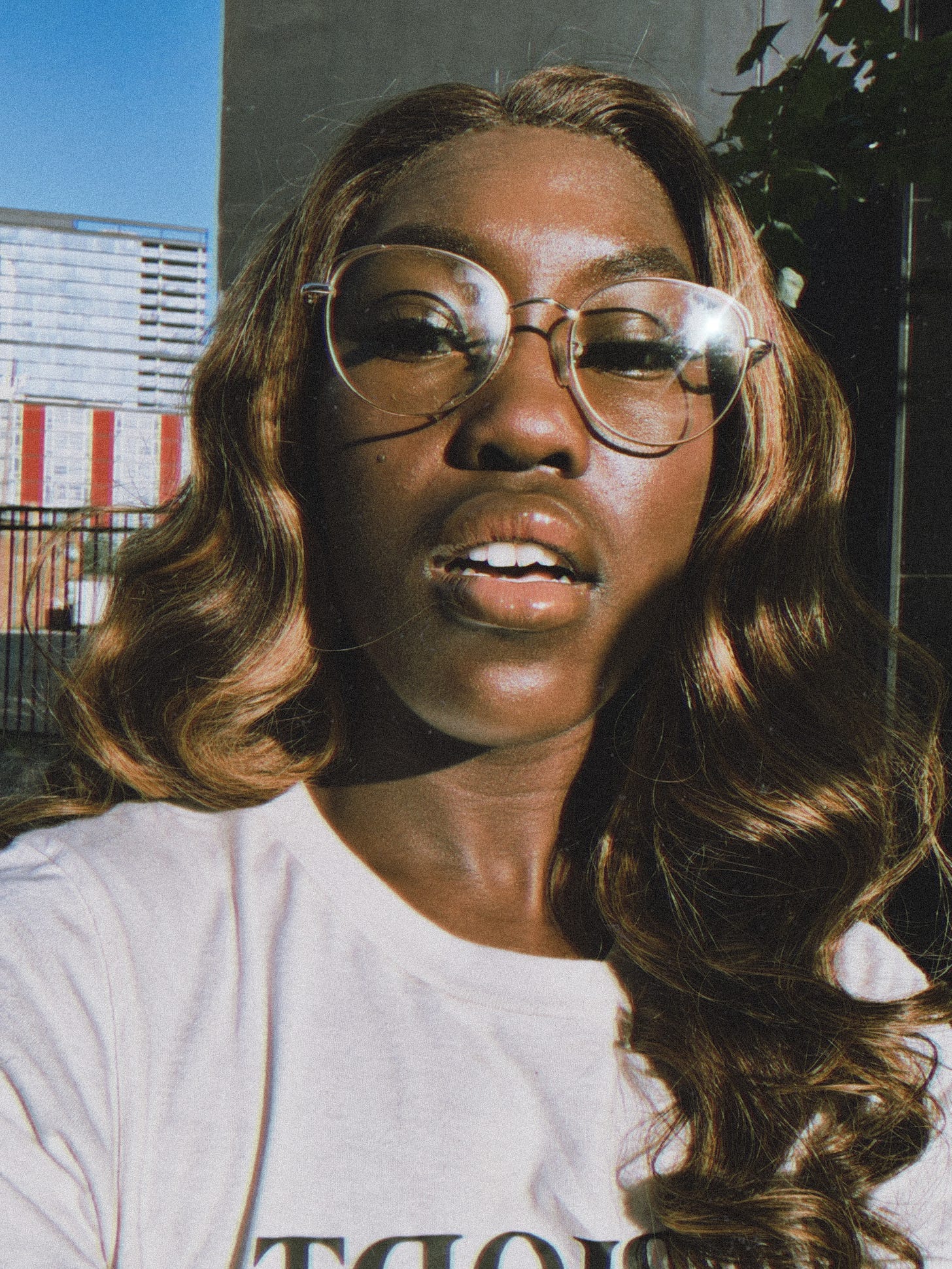
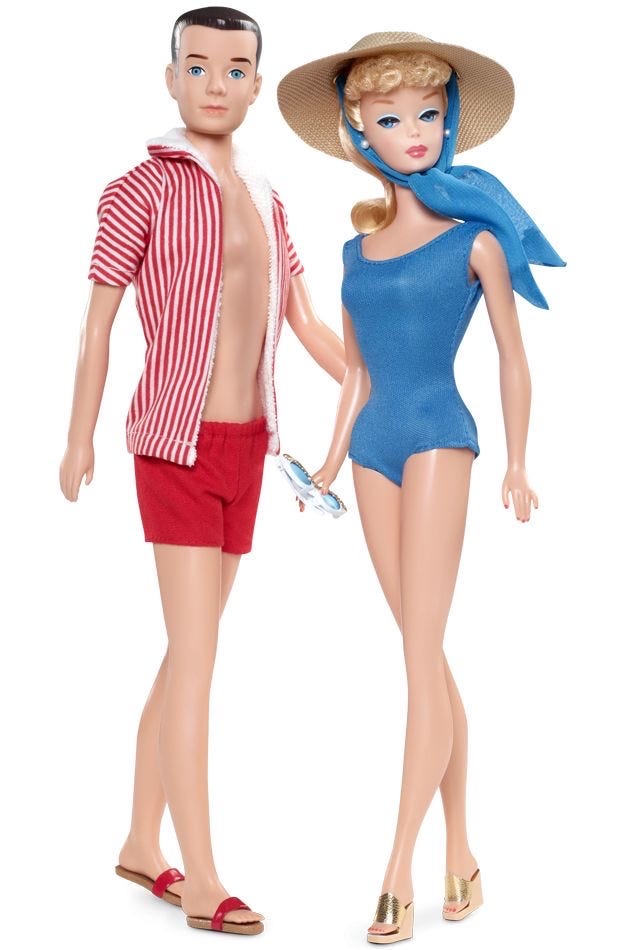
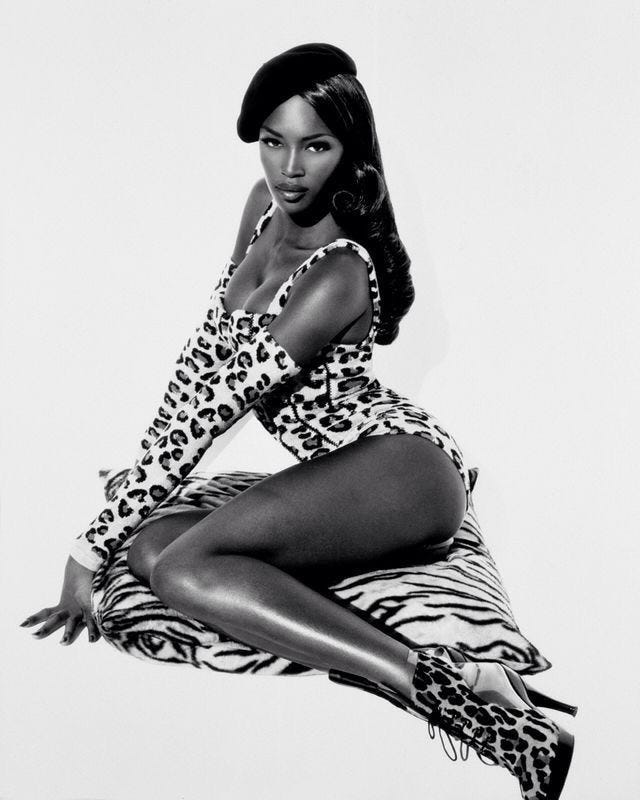
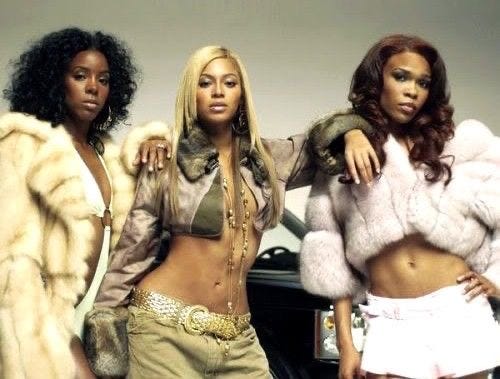
"You didn’t earn shit. The game of Beauty is always a negotiation and you will always, always end up at the end of someone’s beating stick."
Yes. Yes. Yes. In conversations with other white girls about capital B Beauty, the inability to recognize Beauty, too, as a construct that you have not earned, nor lacked, but simply been instilled with is so so prevalent. Constructing an identity that claims whiteness or elements of whiteness requires blinding yourself to Beauty vs beauty, Desirability vs desirability. An identity that is not composed of these elements in an anathema to whiteness--in fact, it cannot even be imagined by whiteness, let alone done.
Love love love your thoughts here! YOUR BRAIN!!
"Your weighted creation doesn’t stretch further than what the checks think is Beautiful, and you might even be content because at least you are not outside the party, standing there, sweltering, sniveling. Ice cream melting. Alone."
I'm really glad you pointed out the position of being desirable. From my perspective as the least attractive/ugly one in my friend groups (of black girls as a black girl), I have noticed how my more desirable friends had a complete disconnect and no capacity to understand how their desirable traits - thinness, lighter skin, looser/longer hair, clear skin, etc. - made things easier for them.
I was formerly desirable at 13-14, but as I got older, puberty hit harder and my body went through changes, I experienced people who had once treated me like anyone else or even had been fond of me and friendly towards me go out of their way to let me know they despised me because they did not find me attractive anymore, so I no longer would receive their kindness. That's when I learned of my sin of being ugly, and for the rest of my teen years I waged war on my body trying to beat it into submission, make myself more desirable, maybe even beautiful. Finally, at 21 I am relieved to stop fighting myself and finally see the enemy this whole time was white supremacy. I feel so lucky to be entering adulthood with all this literature on the violence of beauty to save me a lifetime of self-flagellation. I will no longer apologize; I am grateful for my Ugly, and for the empathy for myself and others it has granted me, for the clarity it gives. Not being able to recognize the depth of the violence of Beauty, being convinced that it is a personal failing to be ugly and that it is the responsibility of the individual to labor in beauty and earn their humanity, this is what keeps us divided and imprisoned by the tyranny of Beauty. It is to the benefit of the oppressors that we do not see one's struggle as everyone's struggle. I am so glad we are bringing this conversation beyond books and into the social media realm through its bite-sized mediums. Its such an important thing that we all need to be aware of and get into.